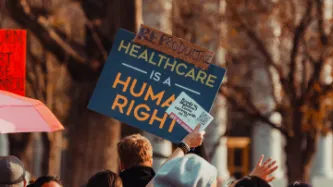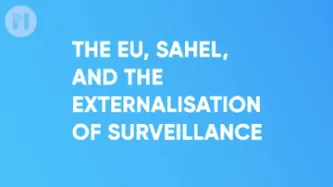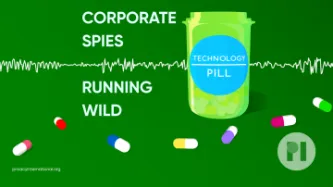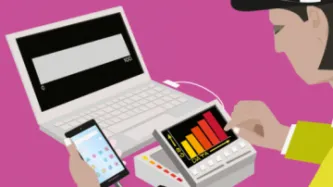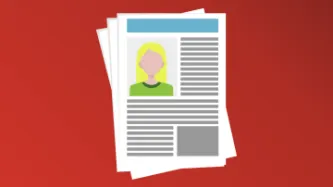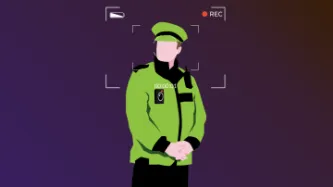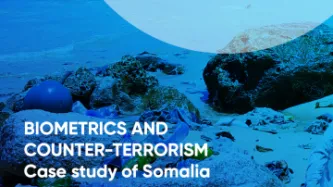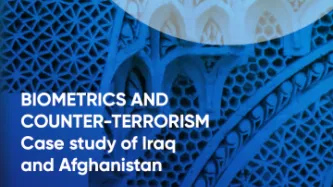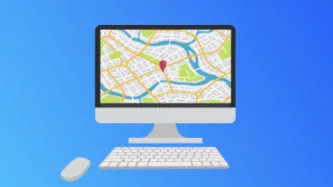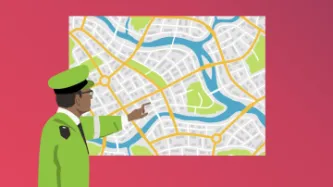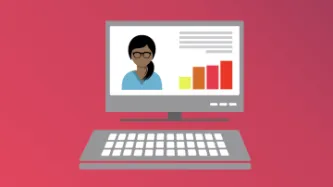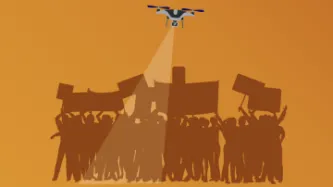Advanced Search
Content Type: Long Read
Social media is now undeniably a significant part of many of our lives, in the UK and around the world. We use it to connect with others and share information in public and private ways. Governments and companies have, of course, taken note and built fortunes or extended their power by exploiting the digital information we generate. But should the power to use the information we share online be unlimited, especially for governments who increasingly use that information to make material…
Content Type: News & Analysis
In a significant and forceful decision, on 1 March 2024 the UK's Data Protection Authority found that the UK Government's GPS tagging of migrants arriving to the UK by small boats and other "irregular" routes was unlawful.
The decision comes as a result of Privacy International's complaint filed in August 2022 against the GPS tagging policy, which alleged widespread and significant breaches of privacy and data protection law. Our complaint relied extensively on anonymous testimonies of…
Content Type: Advocacy
Privacy International (PI), Big Brother Watch (BBW), StopWatch, CopWatch, Defend Digital Me, Liberty and Statewatch have written to Home Secretary James Cleverly to raise concerns over the danger posed to UK society by Facial Recognition Technology (FRT).In a letter sent on 18 January 2024, the signatories raised concerns over the escalating use of FRT and warned the Home Secretary that "The indiscriminate use of this dystopian biometric technology to identify people in public spaces is a form…
Content Type: Advocacy
In August 2023, the UK Westminster Women and Equalities Committee launched a call for evidence into a short inquiry on women’s reproductive health.We submitted a response highlighting the increasing management of women’s reproductive healthcare through digital health initiatives. We raised concerns that these technologies can be privacy-invasive and result in highly sensitive personal information being shared in unexpected and potentially dangerous ways. We encouraged the Committee to ensure…
Content Type: Long Read
In June 2023, the UK government announced its proposal to expand its surveillance powers by, among others, forcing communications operators to undermine encryption or abstain from providing security software updates globally. Building on our response to the government’s plans, this piece explains why what they want to do puts every one of us at risk.
Why your trust (to technologies you use) matters
Surveillance and privacy are complex concepts to grasp – it’s part of the appeal to us at PI.…
Content Type: Long Read
In the UK, successive government ministers and members of parliament have made emotive proclamations about the malaise of "public sector fraud".
This year, former Work and Pensions Secretary Therese Coffey said that the welfare system "is not a cash machine for callous criminals and it’s vital that the government ensures money is well spent...[and] fraud is an ever-present threat."
In 2013, the UK's minister for the disabled made numerous claims that there were "vast numbers of bogus disabled […
Content Type: News & Analysis
In a judgment of 14 October 2022, the UK High Court ordered the UK Home Office to provide remedy to the thousands of migrants affected by its unlawful policy and practice of seizing mobile phones from people arriving by small boats to UK shores.
The availability and spread of new technologies, and the exponential amounts of data they generate, are regularly being abused by governments to surveil and control people - but these new forms of surveillance are only starting to make their way through…
Content Type: Long Read
Introduction
In response to the unprecedented social, economic, and public health threats posed by the Covid-19 pandemic, the World Bank financed at least 232 "Covid-19 Response" projects. The projects were implemented across countries the World Bank classifies as middle and low-income.
This article will focus on eight (8) Covid-19 Response projects which sought to deliver social assistance to individuals and families on a "non-contributory" basis (this means that the intended beneficiaries…
Content Type: Examples
Since the May 2020 murder of George Floyd, Minnesota law enforcement agencies have carried out a secretive, long-running surveillance programme targeting journalists and civil rights activists known as Operation Safety Net, a complex surveillance engine that has expanded to include collecting detailed facial images, scouring social media, and tracking mobile phones. Documents obtained via public records requests show that the police continued using the powers granted under OSN to monitor…
Content Type: Examples
According to internal documents obtained by the Brennan Center, the Polish “strategic communications” specialist Edge NPD, whose business is helping companies with market research, provided the Los Angeles Police Department with a free 40-day trial in which it collected nearly 2 million tweets, including thousands relating to six topics, including Black Lives Matter and “defund the police”. LAPD did not ultimately enter into a contract with the company; the documents do not say what the agency…
Content Type: Examples
According to internal documents, the San Francisco Police Department illegally spied on thousands of Bay Area residents protesting in 2020 against the murder of George Floyd and racist police violence. To conduct its surveillance, the SFPD used a network of more than 300 video cameras in downtown’s Union Square even though the city had passed an ordinance in 2019 that banned SFPD and other city agencies from using facial recognition and requiring them to get approval before using other…
Content Type: Examples
At his 2021 trial, prosecutors used previously-unseen infrared footage from FBI airplane surveillance at 9,000 feet to attempt to show that 18-year-old Kyle Rittenhouse chased one of the two people he later claimed to have shot in self-defence. Rittenhouse travelled from his home in Illinois to Wisconsin to join a protest following the 2020 police shooting of Jacob Blake. Aerial surveillance of people in public places is legal in the US, but illegal if directed at a single person for an…
Content Type: Video
Links
Giacomo’s report on Europe’s Shady Funds to Border Forces in the Sahel https://privacyinternational.org/news-analysis/3223/europes-shady-funds-border-forces-sahel
Giacomo’s report on The European Chase for Saharan Smugglers https://privacyinternational.org/long-read/3347/european-chase-saharan-smugglers
Privacy International’s disclosures on the EU’s surveillance aid https://privacyinternational.org/long-read/4291/surveillance-disclosures-show-urgent-need-reforms-eu-aid-…
Content Type: Report
This briefing takes a look at the private intelligence industry, a collection of private detectives, corporate intel firms, and PR agencies working for clients around the world that have made London their hub.
Often staffed by ex-spooks, and promising complete secrecy, little is known about them. But reports over the years have exposed their operations, including things like hacking and targeting of anti-corruption officials, spying on peaceful environment activists, and running fake '…
Content Type: Video
Links
The Enablers by the Bureau of Investigative Journalism
PI's report
Submit your podcast questions
Sign up to our mailing list
Places to listen
You can listen and subscribe to the podcast where ever you normally find your podcasts:
Spotify | Apple podcasts | Castbox | Google podcasts | Overcast | Stitcher | Pocket Casts | Peertube | Youtube | Soundcloud | Podbean | Podcast Republic | Breaker | Podcast Addict | Deezer | and more...
Content Type: Press release
Today, the High Court ruled that the Home Secretary acted unlawfully and breached human rights and data protection laws by operating a secret, blanket policy of seizing, retaining and extracting data from the mobile phones of asylum seekers arriving by small boat.
This claim for judicial review was brought by three asylum seeking claimants: HM represented by Gold Jennings, and KA and MH represented by Deighton Pierce Glynn. The Claimants, like thousands of others arriving by small boat, all…
Content Type: News & Analysis
In a ruling handed down on 14 October 2021 by the High Court of Kenya in relation to an application filed by Katiba Institute calling for a halt to the rollout of the Huduma card in the absence of a data impact assessment, the Kenyan High Court found that the Data Protection Act applied retrospectively.
Background to the case
Huduma Namba as initially proposed
In January 2019, the Kenyan Statute Law (Miscellaneous Amendment) Act No. 18 of 2018 came into effect, introducing a raft of amendments…
Content Type: News & Analysis
After almost 20 years of presence of the Allied Forces in Afghanistan, the United States and the Taliban signed an agreement in February 2020 on the withdrawal of international forces from Afghanistan by May 2021. A few weeks before the final US troops were due to leave Afghanistan, the Taliban had already taken control of various main cities. They took over the capital, Kabul, on 15 August 2021, and on the same day the President of Afghanistan left the country.
As seen before with regime…
Content Type: News & Analysis
It is difficult to imagine a more intrusive invasion of privacy than the search of a personal or home computer ... when connected to the internet, computers serve as portals to an almost infinite amount of information that is shared between different users and is stored almost anywhere in the world.
R v Vu 2013 SCC 60, [2013] 3 SCR 657 at [40] and [41].
The controversial Police Crime Sentencing and Courts Bill includes provision for extracting data from electronic devices.
The Bill…
Content Type: Long Read
This is based on UK data protection legislation. The UK’s General Data Protection Regulation (UK GDPR) does not apply to processing of personal data for law enforcement purposes by relevant authorities.
What can happen to my personal data at a peaceful protest?
The most common personal data processed at a protest are notes and photographs taken by police officers, along with voice and video recordings taken from body-worn cameras or drones.
Data processing can also happen with…
Content Type: Long Read
Photographing or filming incidents involving police and protestors is an important way of holding the police to account for their actions. Members of the public and the media do not need a permit to film or photograph in public places and police have no power to stop them filming or photographing incidents or police personnel.[1]
Can the police stop and search me for filming or taking photographs?
The police have the discretion to ask you to move back if they think you are interfering with…
Content Type: Report
In Somalia, international entities like the US Department of Defense (DoD) and intergovernmental organizations such as the United Nations (UN) have used biometrics in the name of counterterrorism, collecting and indefinitely storing biometric data, frequently in the absence of full disclosure or appropritate regulation. These biometric initiatives have had dubious benefits and known detrimental effects on local populations. Nevertheless, most Somalis have little knowledge or say over how their…
Content Type: Report
In Afghanistan and Iraq, the U.S. Department of Defense developed its biometric program in confluence with US military operations in. Its expansion was tightly linked to the goals of military commanders during the “War on Terror”: to distinguish insurgents and terrorists from the local civilian population. This research shows how the DOD’s biometric programme was developed and implemented without prior assessment of its human rights impact and without the safeguards necessary to prevent its…
Content Type: Explainer
What is social media monitoring?
Social media monitoring refers to the monitoring, gathering and analysis of information shared on social media platforms, such as Facebook, Twitter, Instagram and Reddit.
It may include snooping on content posted to public or private groups or pages. It may also involve “scraping” – grabbing all the data from a social media platform, including content you post and data about your behaviour (such as what you like and share).
Through scraping and other tools…
Content Type: Explainer
What are my 'unique identifiers' and where are they stored?
Your phone and your SIM card contain unique identifiers about you, which can be accessed by the police to identify you.
The IMSI (International Mobile Subscriber Identity) is a unique number associated with your SIM card. It doesn't change, even if you put the SIM card into a different phone.
If you have a mobile phone subscription, the IMSI will be associated with personal information such as your name and address.
The IMEI (…
Content Type: Explainer
Where are my communications stored?
Text messages/phone calls: Traditional cellphone communications happen over the cellular network. You usually access those with the text message and phone call apps that are provided as standard on your phone. While phone calls aren’t stored anywhere, text messages are stored locally on your and the recipient’s devices. They might also be temporarily stored by the network provider.
Messaging apps: Messaging platforms enable fairly secure communication…
Content Type: Explainer
Where is my phone's location data stored?
Your phone can be located in two main ways, using GPS or mobile network location:
1. GPS
GPS (that stands for Global Positioning System) uses satellite navigation to locate your phone fairly precisely (within a few metres), and relies on a GPS chip inside your handset.
Depending on the phone you use, your GPS location data might be stored locally and/or on a cloud service like Google Cloud or iCloud. It might also be collected by any app that you…
Content Type: Explainer
What is predictive policing?
Predictive policing programs are used by the police to estimate where and when crimes are likely to be committed – or who is likely to commit them. These programs work by feeding historic policing data through computer algorithms.
For example, a program might evaluate data about past crimes to predict where future crimes will happen – identifying ‘hot spots’ or ‘boxes’ on a map. But the data these programs use can be incomplete or biased, leading to a ‘feedback…
Content Type: Explainer
What is LEDS?
LEDS is a new mega-database currently being developed by the UK Home Office.
LEDS will replace and combine the existing Police National Database (PND) and the Police National Computer (PNC). The aim is to provide police and others with a super-database, with on-demand, at the point of need access, containing up-to-date and linked information about individuals’ lives.
Once your details are in LEDS, numerous agencies will have access to that information (e.g. HMRC and DVLA),…
Content Type: Explainer
What are police drones?
Drones are remotely controlled Unmanned Aerial Vehicles (UAVs) of varying sizes.
They usually come equipped with cameras and might be enabled with Facial Recognition Technology.
Drones can be equipped with speakers, surveillance equipment, radar and communications interception tools, such as ‘IMSI catchers’.
How might drones be used during protests?
Camera-enabled drones may be used to remotely monitor and track people’s movements in public spaces, including at…



